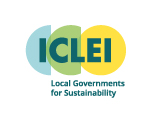New standard can help cities unleash results-based finance for their projects
The concept of results-based finance is increasingly attracting funds for transformative projects that now catch the attention of investors.
This concept relies on the principle that investors fund projects based on their positive impacts. These can be primarily social, economic or environmental with a variety of co-benefits. In the context of results-based climate finance, for example, investors fund projects based on their impacts on climate change mitigation and adaptation, as well as the variety of sustainable co-benefits they can yield.
On this premise, and with the financial support of Climate-KIC under the LoCaL program, a project was initiated by the South Pole Group, the Gold Standard foundation and ICLEI – Local Governments for Sustainability to develop a customized, results-based finance scheme that helps projects attract financing based on their development benefits and greenhouse gas emissions reductions, enabling investors to see the clear impact of their investment.
A necessary initial first step in developing the scheme was to develop a certification standard that could help project owners to certify the many and multi-sector impacts of their sustainable urban development projects. The Sustainable Urban Development module was developed under the holistic certification standard called “Gold Standard for the Global Goals” (GS4GG). The GS4GG Sustainable Urban Development Module enables cities to measure and verify the positive contributions of their sustainable development actions towards the Sustainable Development Goals. The module was first tested on a few cities identified from existing project preparation facilities, including from the Transformative Actions Program (TAP), managed by ICLEI.
Rajkot in India had submitted a TAP project on waste management. This was selected and its financial viability tested through the Sustainable Urban Development module. The exercise proved that the internal rate of return of Rajkot’s project under market conditions was too low, and that the revenue generated through the sale of emissions reduction credits alone would not be sufficient to fill the revenue gap. It was identified however, what would make the project financially viable: if the city, the national government and international donors monetized its development co-benefits through grants, concession loans or results-based finance.
In the future, this certification standard will be available to all interested TAP applicants, enabling them to certify and monetize the positive contributions of their proposed projects and unlock financing through results-based finance mechanisms for example, or carbon credits. With other international (new) standards such as GIB’s SuRe® – The Standard for Sustainable and Resilient Infrastructure, the ISO 37120 – Sustainable development of communities, the Gold Standard’s Sustainable Urban Development module and other relevant certification standards will constitute an optional set of technical and financial support recommended to applicants of the TAP project preparation pipeline.






